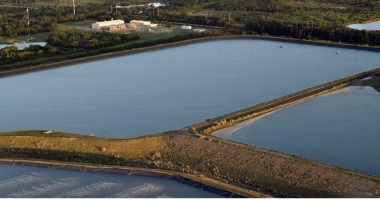Climate, Health and Equity Brief
Subject: Economic Losses, Zevs And Carbon-Free Electricity
August 22, 2019

Hot Topic: Economics. Experts agree that the economic stakes of climate change continue to rise. A new study from the National Bureau of Economic Research has found that all countries that fail to adhere to the 2015 Paris Climate Agreement will face GDP losses at rates higher than previously projected. And as Axios notes, in order to avoid devastating financial losses and further planetary impact, countries must make decisions now that may not appear to be in their best short-term financial interest, presenting challenges both economic and otherwise for world leaders.
Economic impacts are also hitting industries in a range of U.S. states. In Alaska, warming waters are killing salmon before they have time to spawn, sounding alarm for the state’s fishing industry. And in Florida, farmers and ranchers previously silent on climate change are seeking out policymakers to express concern about the impacts they are seeing in the field and discuss ways they can become part of the solution.
Sound public policy by elected leaders makes a tangible difference, as one example this week from North Carolina shows. And more U.S. states are taking action: In recent days, Colorado has required automakers to increase the electric cars available to Coloradans by 2023, and Wisconsin Governor Tony Evers signed an executive order setting the state on a path to reach 100% carbon-free electricity by 2050. We are hopeful that despite opposite actions at the federal level, state leaders will continue to show such vision, tenacity, and courage.
—Matt & Traci, GMMB
Politics & Economy
A new study has found that countries that fail to abide by the 2015 Paris Agreement will face bigger GDP shortfalls than originally anticipated in the decades ahead. (The Washington Post)
U.S. cities, home to more than 80% of the nation’s population, are disproportionately impacted by increasing heatwaves and rainfall due to aging or inadequate infrastructure, forcing many cities to rapidly adapt. (The Guardian)
In order to solve climate change and protect themselves financially over the long term, every country must make decisions now that may not be in their short-term best interests, presenting a vexing collective action problem for world leaders. (Axios)
Unprecedented heatwaves in Alaska have killed thousands of salmon in Alaskan rivers, many before they were able to spawn for the season. (Independent)
Health
A PLOS Biology study has found that people in both the U.S. and Denmark exposed to poor air quality were more likely to be diagnosed with bipolar disorder or depression. (Reuters)
Studies in North Carolina have demonstrated both the respiratory and cardiovascular health effects of poor air quality as well as the positive impact that environmental policies can have on public health. (The Hill)
Due to the emission of excess sulphur dioxide, Australian coal-burning power stations are causing more than 4,000 premature deaths per year. (The Guardian)
Equity
Mexico and the U.S. states of Arizona and Nevada will be required to take less water from the Colorado River next year for the first time ever, representing a proactive effort to prevent a water crisis. (USA Today)
Florida farmers, previously quiet on climate change, are beginning to meet with policymakers about the troubling changes they are experiencing in the field. (Miami Herald)
Action
Colorado’s Air Quality Control Commission approved the state’s zero-emissions vehicle mandate, which requires automakers to sell more zero-emission vehicles starting in 2023. (The Colorado Sun)
Wisconsin Governor Tony Evers signed an executive order setting the state on a path to reach 100% carbon-free electricity by 2050, despite lack of legislative support. (Utility Dive)
Upcoming Events
- September 4-6: The 2019 Planetary Health Annual Meeting
- September 12: Forests, Food & Land Day: Meeting the 30×30 Challenge
- September 23: UN Climate Summit 2019
- September 23-29: Climate Week NYC
What’s your diet’s carbon footprint?
Find out with BBC’s climate change food calculator
“Change your leaders, not your light bulbs.”
-Thomas L. Friedman
Have feedback on this issue? Email us.

)




